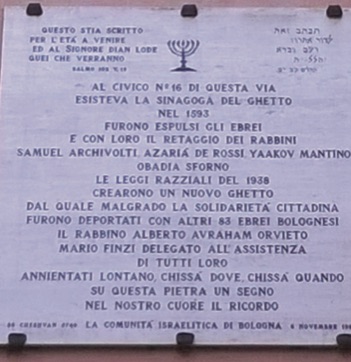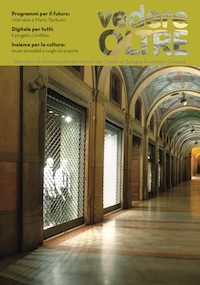Wednesday, January 27, 2021, is not just another day. It is the date on which, in 1945, Soviet troops liberated the Auschwitz extermination camp, the largest of all, built by the Nazis to implement the criminal project dedicated to the final solution to the Jewish question. Soldiers found about 7,000 prisoners still alive and, with them, the testimonies of what had happened in that factory of death. This was the dramatic epilogue to a terrible story that began in 1938 with the advent of the first racial laws. In that year, the Jewish community of Bologna, a few thousand people, was perfectly integrated with the rest of the citizens. But with the passage of time, even in Bologna, as in other cities in Italy, more and more oppressive provisions were applied. At first, Jewish faculty were expelled from the University as were doctors from hospitals and lawyers from courts. These absurd measures "in defence of the race" still today represent a disgrace for the oldest university in the world and had repercussions on research and science, given that enlightened minds had fled forever. With Italy's entry into war on June 10, 1940, the situation got even worse. In November 1943 came out the resolution of Mussolini in which Jews were defined as belonging to an enemy nationality and, as such, had to be deprived of all possessions and sent in special concentration camps. Between November and December of 1943, numerous raids were organized to capture Jews in the city who, after a period of detention in the prison of San Giovanni in Monte, were taken to the provincial concentration camp of Fossoli near Modena, considered a place of transit. la delibera di Mussolini nella quale gli ebrei erano definiti appartenenti a nazionalità nemica e, come tali, dovevano venire privati di ogni.

In February 1944, convoys began to leave for hell: destination the lagers of Bergen-Belsen and Auschwitz. On the first of those trains, which left Carpi on February 22, 1944, Primo Levi was also on board, along with many families arrested in Bologna. Emilian police following the instructions of Julius Wibertz, the leader of the Sipo-SD command in Bologna, arrested every individual on the territory of Jewish identity: individuals, family groups, city personalities or simple merchants. Unfortunately, even with the shutdown of Auschwitz, Bolognese SS officers organized secret shootings of Jews joining them to captured partisans. After living in peace in Bologna for over two centuries, in the area that gravitates around Piazza Ravegnana, the medieval heart of the city in Via de' Giudei and Via dell'Inferno where, at number 16, there was the synagogue destroyed by bombing in 1943, the Jewish population of Bologna was systematically rounded up, deported and murdered. Today, a plaque placed on the new synagogue in Via de' Gombruti, commemorates the victims, including the rabbi in authority at the time, who never returned to Bologna. There were 800 Jews living in the city and, of these, 114 died in German camps. One day is not enough to remember, but we have a whole life not to forget what still remains one of the most horrendous human crimes.





.png)